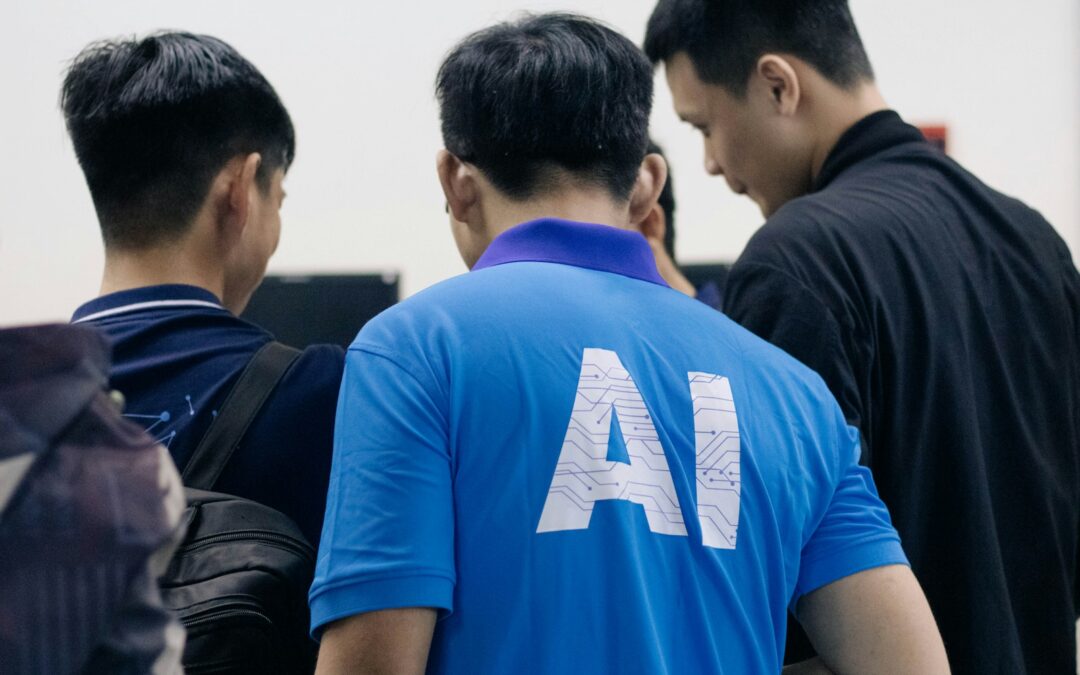Theories of Singularity and Control
Understanding the Singularity
As AI systems become more advanced, the challenge of ensuring human control over these superintelligent systems becomes increasingly critical. Theories about the singularity vary widely in their approaches to control, but they all underscore the importance of maintaining human oversight and decision-making power in the face of rapidly evolving AI capabilities.
Ensuring human control over superintelligent AI is a topic of paramount importance for business executives, mid-level managers, and entrepreneurs. In regions like Saudi Arabia and the UAE, where technological innovation is driving economic growth, understanding and addressing the implications of the singularity is crucial for sustainable development. This article explores various theories about the singularity and their approaches to ensuring that humans remain in charge of superintelligent AI systems.
In cities like Riyadh and Dubai, which are at the forefront of technological advancements, the integration of AI into business and government operations is accelerating. As these technologies become more autonomous and powerful, developing robust frameworks to maintain human control is essential to prevent unintended consequences and ensure that AI serves the best interests of humanity.
The Control Problem in AI
The control problem in AI refers to the challenge of designing AI systems that remain under human control even as they become more intelligent and autonomous. Several theories address this issue, each proposing different strategies to ensure that humans can direct and manage superintelligent AI systems. One of the most prominent theories is the alignment theory, which focuses on aligning AI’s goals and values with those of humans.
Alignment theory suggests that AI systems should be programmed with ethical guidelines and value systems that reflect human interests. This approach aims to create AI that not only understands but also prioritizes human values and ethical considerations. In the context of business and technology leadership, this means developing AI that can make decisions beneficial to both the organization and society at large.
Another significant approach is the capability control theory, which emphasizes limiting the capabilities of AI systems to prevent them from becoming uncontrollable. This involves designing AI with built-in constraints and fail-safes that ensure human intervention is always possible. For executives and managers in the Middle East, where rapid technological adoption is a priority, balancing innovation with effective control measures is crucial for managing risks associated with superintelligent AI.
Strategic Implementation of Control Mechanisms
Implementing control mechanisms for superintelligent AI involves a combination of technical solutions, regulatory frameworks, and ethical guidelines. One practical strategy is to develop AI systems with transparency and explainability features, allowing humans to understand and intervene in AI decision-making processes. This transparency is vital for maintaining trust and accountability, particularly in regions like Saudi Arabia and the UAE, where public confidence in technology-driven initiatives is essential for their success.
Incorporating ethical AI principles into business operations and governmental policies is another critical aspect of ensuring human control. Executive coaching services can play a significant role in equipping leaders with the knowledge and skills to navigate the complexities of AI ethics and governance. By fostering a culture of ethical AI use, organizations can mitigate risks and harness the benefits of superintelligent systems responsibly.
Moreover, collaboration between stakeholders—including governments, industry leaders, and academic institutions—is essential for developing comprehensive control frameworks. In Dubai and Riyadh, collaborative efforts can drive the creation of standardized guidelines and best practices for AI governance, ensuring that the region remains at the forefront of responsible AI innovation.
Practical Approaches to AI Control
Ethical AI Development
Ensuring human control over superintelligent AI begins with ethical AI development practices. This involves designing AI systems that adhere to ethical principles and prioritize human well-being. In practice, this means integrating ethical considerations into the AI development lifecycle, from initial design and training to deployment and maintenance.
For business leaders and entrepreneurs, ethical AI development is not only a moral imperative but also a strategic advantage. Companies that prioritize ethical AI can build trust with customers, partners, and regulators, enhancing their reputation and competitive edge. In regions like the UAE and Saudi Arabia, where technological leadership is a key economic driver, ethical AI can support long-term success and sustainability.
Developing ethical AI also requires continuous monitoring and evaluation to ensure that AI systems remain aligned with human values and objectives. This involves regular audits, transparency reports, and stakeholder engagement to address potential ethical concerns and adapt to evolving societal norms and expectations.
Regulatory and Policy Frameworks
Regulatory and policy frameworks play a crucial role in ensuring human control over superintelligent AI. Governments and regulatory bodies must establish clear guidelines and standards for AI development and use, balancing innovation with safety and accountability. In Saudi Arabia and the UAE, proactive regulatory measures can support the responsible deployment of AI technologies while fostering a competitive and dynamic tech ecosystem.
Effective AI regulation involves setting standards for transparency, accountability, and ethical behavior. This includes requirements for explainability, data privacy, and security, ensuring that AI systems operate within well-defined boundaries. Additionally, regulatory frameworks should promote international collaboration and alignment, facilitating the global exchange of best practices and innovations in AI governance.
For business leaders, understanding and complying with regulatory requirements is essential for mitigating risks and avoiding potential legal and reputational consequences. Engaging with policymakers and participating in the development of AI regulations can also provide valuable insights and influence the creation of balanced and effective policies.
Building a Culture of AI Responsibility
Creating a culture of AI responsibility within organizations is key to ensuring human control over superintelligent systems. This involves fostering an environment where ethical considerations and human values are central to AI development and deployment. Leadership plays a critical role in shaping this culture, setting the tone for responsible AI practices and decision-making.
Executive coaching services can support leaders in developing the skills and knowledge needed to manage AI responsibly. This includes training on AI ethics, governance, and risk management, as well as strategies for fostering a culture of continuous learning and adaptation. By prioritizing AI responsibility, organizations can build resilience and agility, better positioning themselves to navigate the challenges and opportunities of the AI era.
In conclusion, the singularity and the rise of superintelligent AI present both opportunities and challenges for business and society. By embracing ethical AI development, establishing robust regulatory frameworks, and fostering a culture of responsibility, we can ensure that humans remain in control of these powerful technologies. For regions like Saudi Arabia and the UAE, proactive leadership and strategic collaboration are essential for harnessing the potential of AI while safeguarding human values and interests.
—
#Singularity #AIControl #SuperintelligentAI #HumanControl #AITheories #ArtificialIntelligence #TechnologyEvolution #SaudiArabia #UAE #Riyadh #Dubai #ModernTechnology #BusinessSuccess #LeadershipSkills #ProjectManagement























